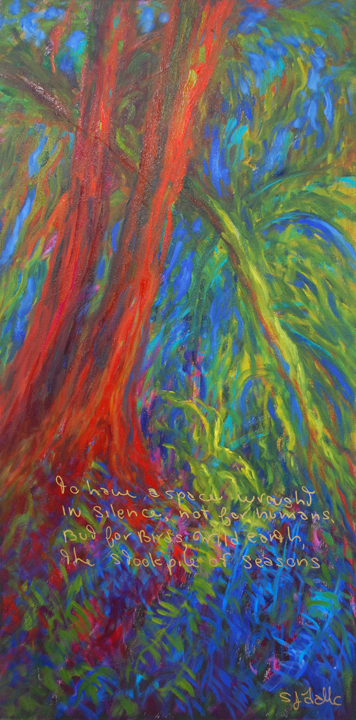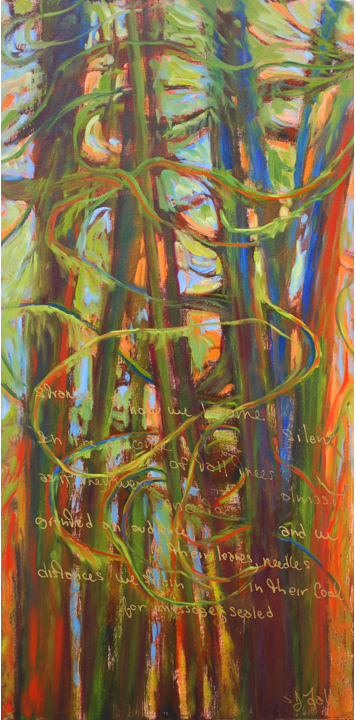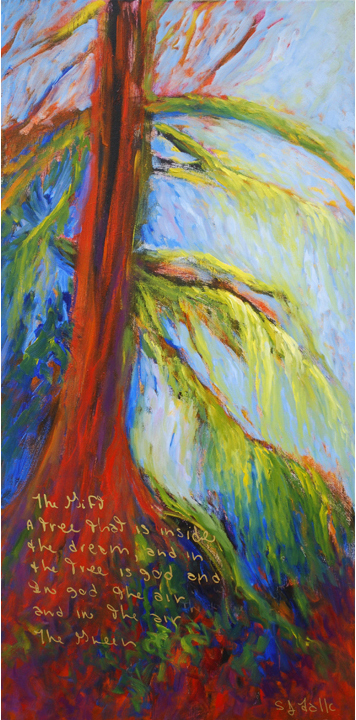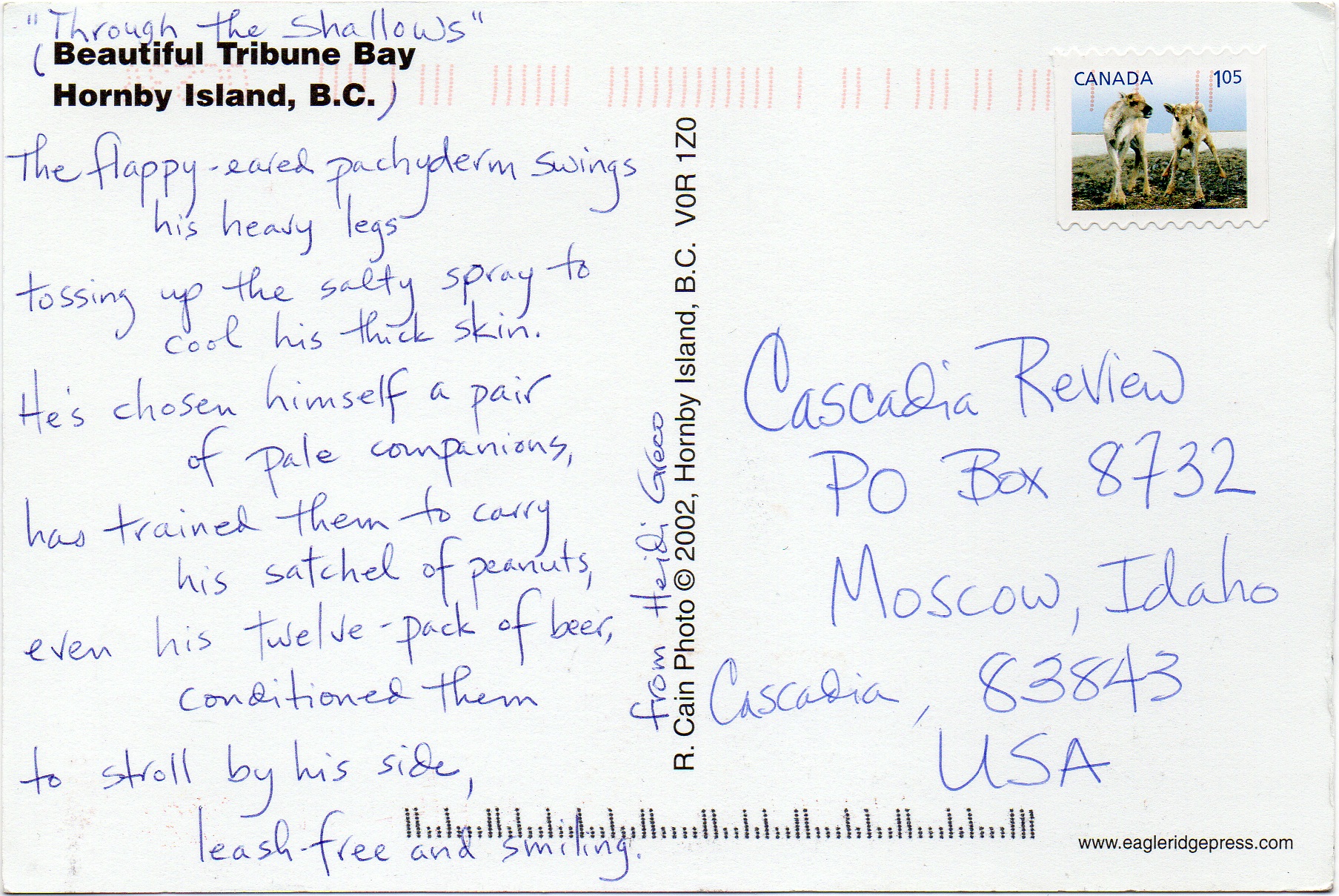by lesley-anne evans
A resident must ensure that no air conditioning units, laundry, flags, clothing, bedding
or other articles are hung or displayed from windows, balconies or other parts
of the building so that they are visible from outside of the building.
Let’s imagine she hauls the basket up the iron steps around back
and hangs the socks, toe first. Next the shirts, always upside down,
measuring out the pegs and their double duty, one shirt holding
hands with the next, grasping the next. This pattern
of one of these things is just like the other, over and over
along parallel lines, swung over the garden
where strawberries promise jam in matching jars
when she gets to it later. Pillowcase and towel flags
celebrate morning and the sun bleached fresh they’ll share come dark.
“Works and Services” includes highways, sidewalks, boulevards, boulevard
crossings, transit bays, street lighting, wiring, water distribution systems,
fire hydrant systems, sewage collection and disposal systems, drainage collection
and disposal systems and such other infrastructure or systems as may be provided
within the City from time to time.
Let’s say we’re with him in the drive shed tinkering, oil under his nails
and it won’t wash out. He’s staked the tomatoes, harvest is heavy
this year. His brother’s coming to take steers from their mothers
and move them up the east field, their wet noses meet him at the fence
each morning he puts down alfalfa. They question his intent,
but no use working himself up when the south gate needs mending
and cherries are due for spray. Each day has work enough of its own.
The Noise Control Bylaw regulates or prohibits the making of
objectionable noise within the City of Kelowna that may disturb the quiet or
enjoyment of other individuals. Objectionable noises include playing radios
and stereos at high volume, or keeping animals or birds which by their noise
unduly disturbs the surrounding neighbourhood.
Let’s picture Sunday afternoon and they’re all there, blankets
spread on the grass, boy cousins playing stick ball, girls all whispers
and giggles. He looks at her sitting across from him, remembers
how she planted whips in the fields alongside the men. How her mouth
is a rose opening, her legs summer gold and capable of carrying them
well through winter. He bites into his pie, Macintosh, cinnamon,
pastry flakes on his tongue, the flavour of what the land gives
and what it withholds. She leans over, her finger to his mouth
returns to hers. A taste of him and the pie, that sweetness
taken in, as she will welcome his body
in, their harvest in a small house
by the side of a gravel road.
“Parcel” means any lot, block, or other area in which land is held or into
which land is subdivided, but does not include a Highway.
“Subdivide" or "Subdivision" means:
(a) the division of land into two or more Parcels whether by plan, apt
descriptive words,
or otherwise;
(b) the consolidation of Parcels into one Parcel by plan; or
(c) the creation of a Highway or a portion of a Highway by plan.
We’ll end it here, say nothing of yellow excavators, fallow fields,
a sign crudely taped to their white front door. We’ll downplay entirely
asbestos removals and shattered foundations. We certainly won’t mention
the grandson’s salvage operation, his pickup and flat bed trailer
with the old drive shed loaded high, a land barge
floating long down the lane way, dust clouds in waves,
the field of ripening alfalfa.
Portions of text taken from the City of Kelowna Civic Bylaws, “intended
to keep Kelowna clean, healthy and safe. City Council enacts bylaws that are
created, interpreted and administered by a number of City divisions and departments.
Bylaw Services promotes, facilitates and enforces general compliance with bylaws
that pertain to the health, safety and welfare of the community.”
(http://www.kelowna.ca/CM/page1329.aspx)
Like this:
Like Loading...
Related






